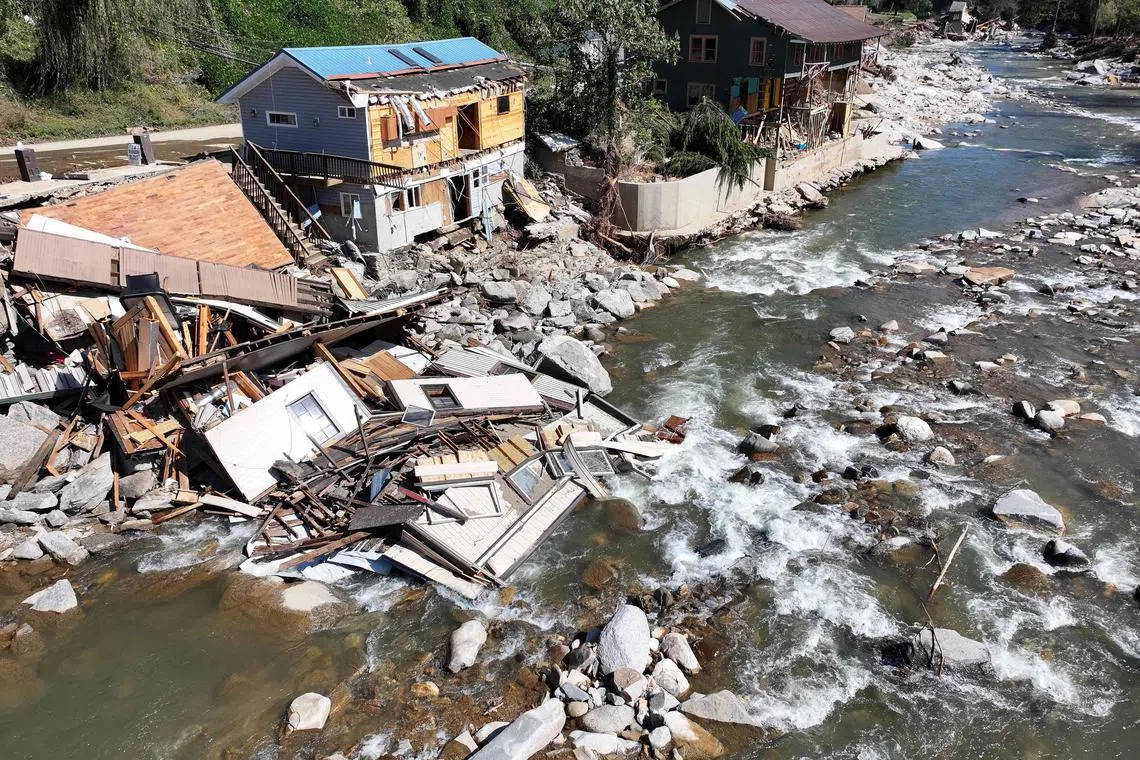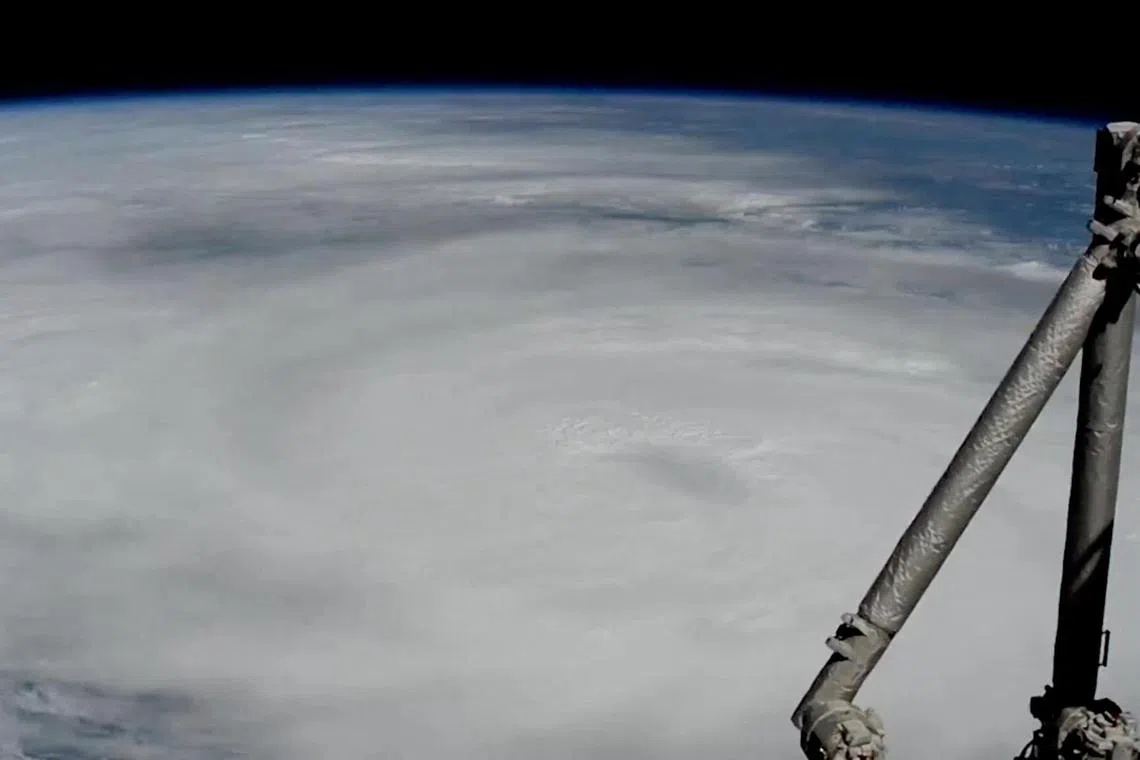Climate change made deadly Hurricane Helene more intense: Study
Sign up now: Get ST's newsletters delivered to your inbox

An aerial view of destroyed and damaged buildings in the aftermath of Hurricane Helene flooding in Bat Cave, North Carolina on Oct 8.
PHOTO: AFP
WASHINGTON - Hurricane Helene’s torrential rain and powerful winds were made about 10 per cent more intense due to climate change, according to a study published on Oct 9 by the World Weather Attribution (WWA) scientific group.
Although a 10 per cent increase “might seem relatively small... that small change in the hazard really leads to big change in impacts and damage,” said climate scientist Friederike Otto, who heads the research organisation. WWA is an international group of scientists and meteorologists that studies the role of climate change in extreme weather events.
The study also found that fossil fuels – the primary cause of climate change – have made hurricanes like Helene 2.5 times more likely to occur.
In other words, storms of Helene’s magnitude were formerly anticipated once every 130 years, but now the probability is closer to once every 53 years, on average.
And yet, the research comes as the south-eastern US state of Florida prepares for the arrival of another major hurricane, Milton,
Milton, a maximum Category 5 storm, was generating maximum sustained winds of 270 kmh, the National Hurricane Centre said. US President Joe Biden has begged Florida residents to flee Hurricane Milton, warning that the storm could turn into the worst natural disaster to hit the state in a century.
To conduct the study on Helene, the WWA researchers focused on three aspects of the storm: precipitation, winds and the water temperature of the Gulf of Mexico – a key factor in its formation.
“All aspects of this event were amplified by climate change to different degrees,” Dr Ben Clarke, a co-author of the study and researcher at Imperial College London, told a press conference.
“And we’ll see more of the same as the world continues to warm,” he continued.
Destruction
Helene made landfall in north-western Florida on Sept 26 as a Category 4 hurricane with winds up to 225 kph.
The storm then moved north, causing heavy rain and devastating floods in several states, including North Carolina, where it claimed the highest death toll.
The authors of the study emphasised that the risk posed by hurricanes has increased in scope beyond coastal areas.
Chief meteorologist Bernadette Woods Placky at NGO Climate Central said Helene “had so much intensity” that it would take time for it to lose strength, but the “storm was moving fast... so it could go farther inland pretty quickly.”.
This study used three methodologies to examine the three aspects of the storm, and was conducted by researchers from the United States, Britain, Sweden and the Netherlands.

Satellite image shows Hurricane Helene churning through the Gulf of Florida.
PHOTO: REUTERS
To study its rainfall, researchers used an approach based on both observation and climate models, depending on the two regions involved: one for coastal areas like Florida, and another for inland areas like the Appalachian mountains.
In both cases, the study found precipitation had increased by 10 per cent because of global warming, which is currently at 1.3 degrees Celsius above pre-industrial levels. This is the global average temperature increase for the planet’s surface on land and the oceans.
To study Helene’s winds, scientists looked at hurricane data dating back as far as 1900.
They determined Helene’s winds were 11 per cent stronger, or 21 kmh, as a result of climate change.
Lastly, the researchers examined the water temperature in the Gulf of Mexico, where Helene formed, finding it was around 2 deg Celsius above normal.
This record temperature was made 200 to 500 times more likely due to climate change, the study said.
Warmer oceans release more water vapour, providing more energy for storms as they form.
“If humans continue to burn fossil fuels, the US will face even more destructive hurricanes,” Dr Clarke warned in a statement. AFP


